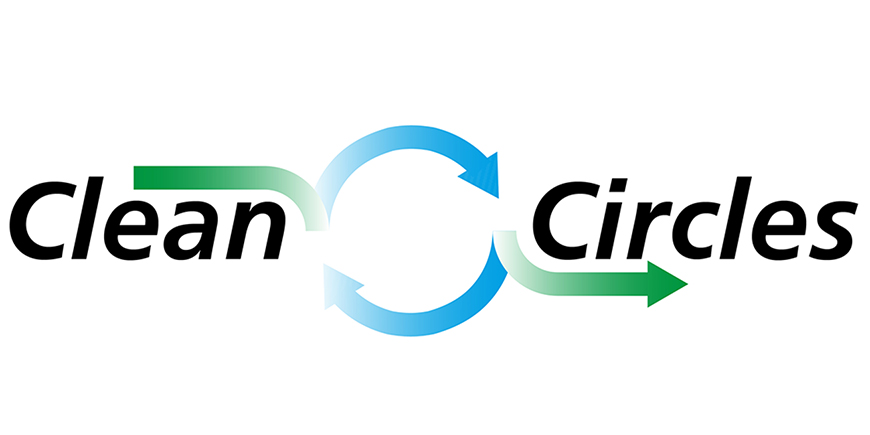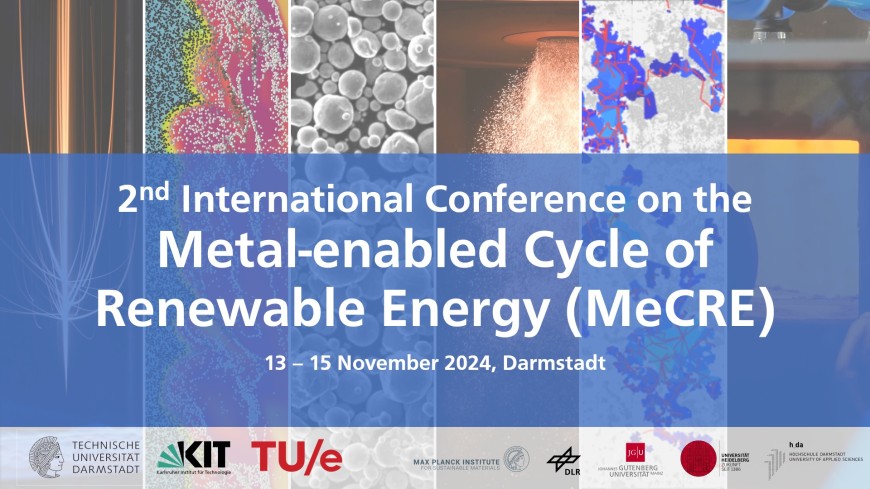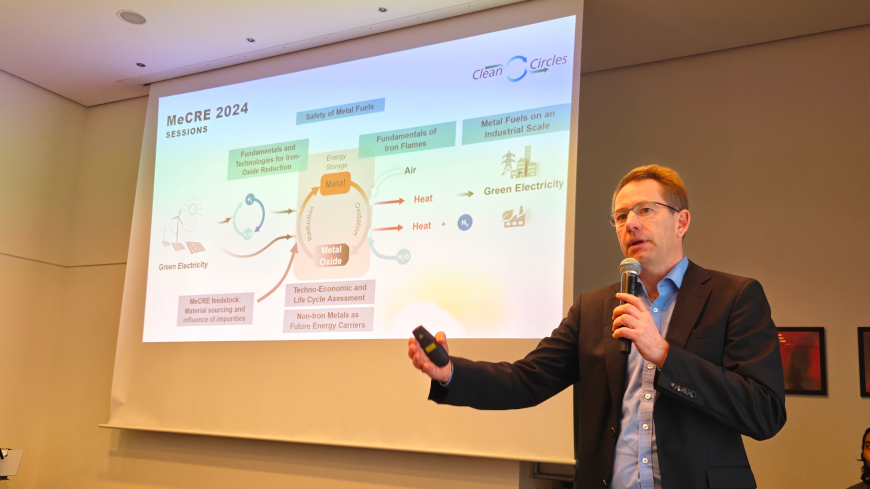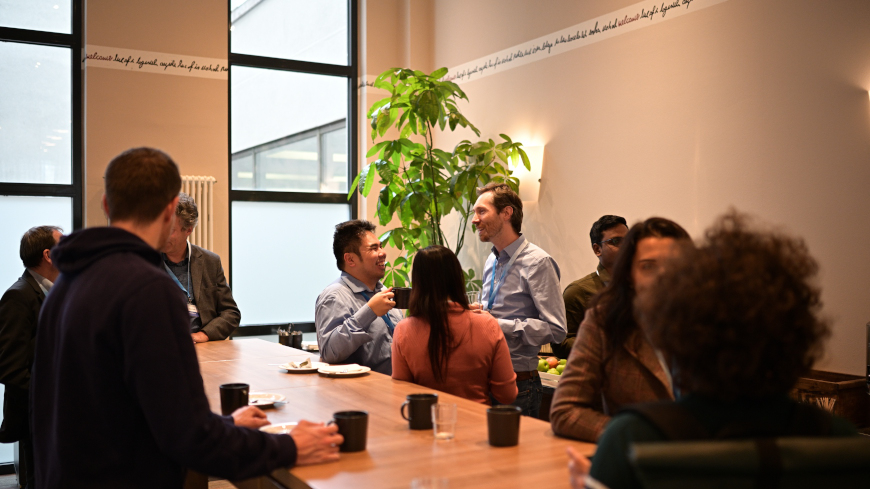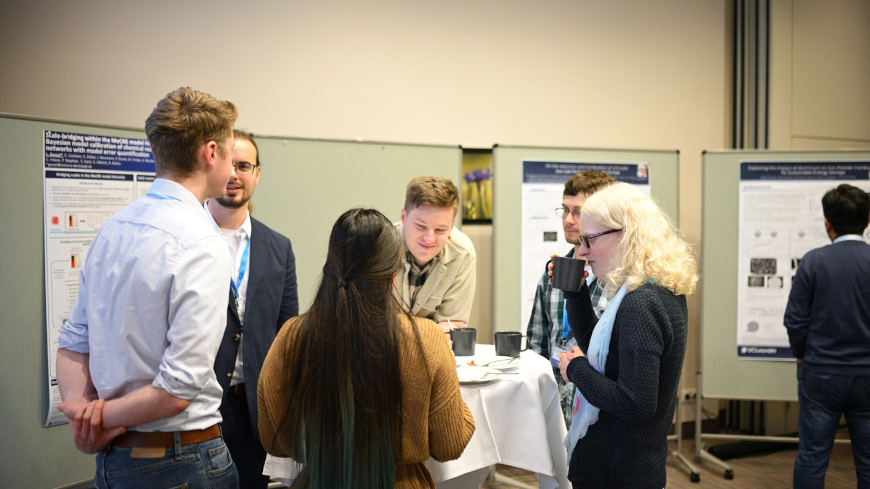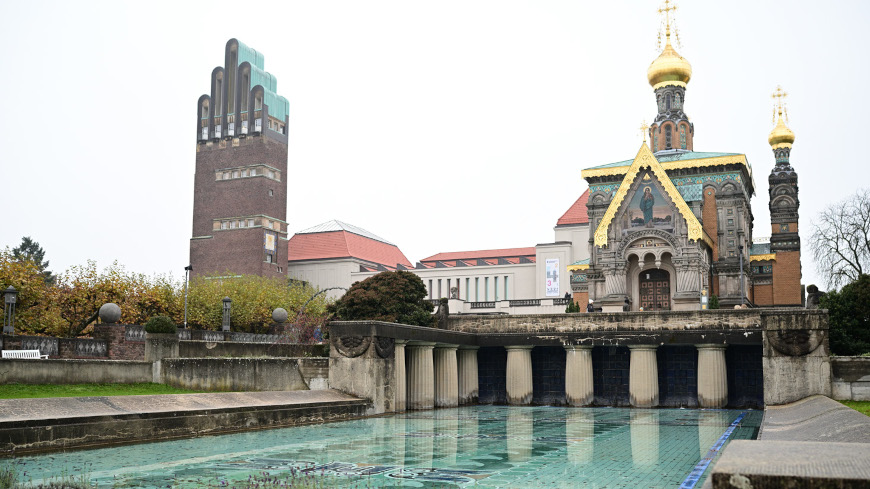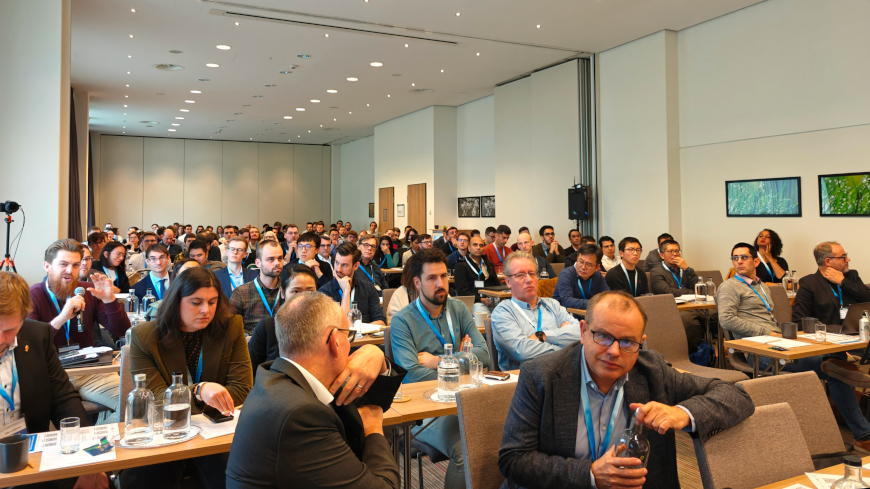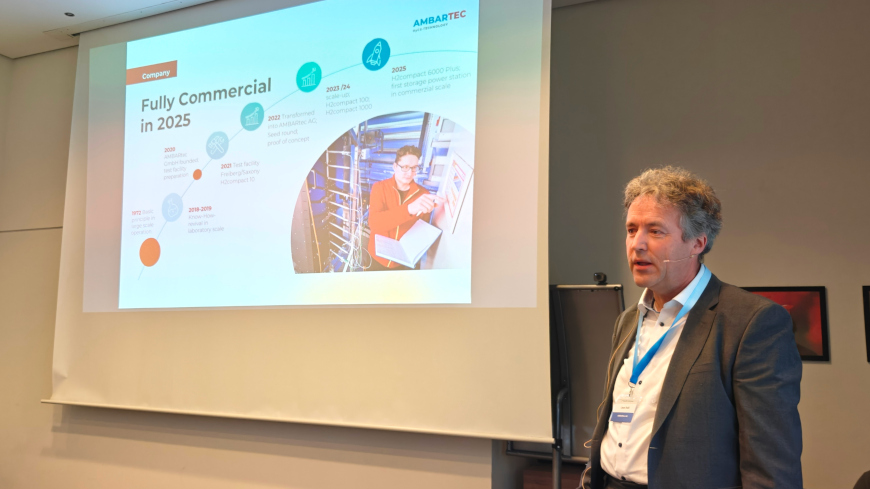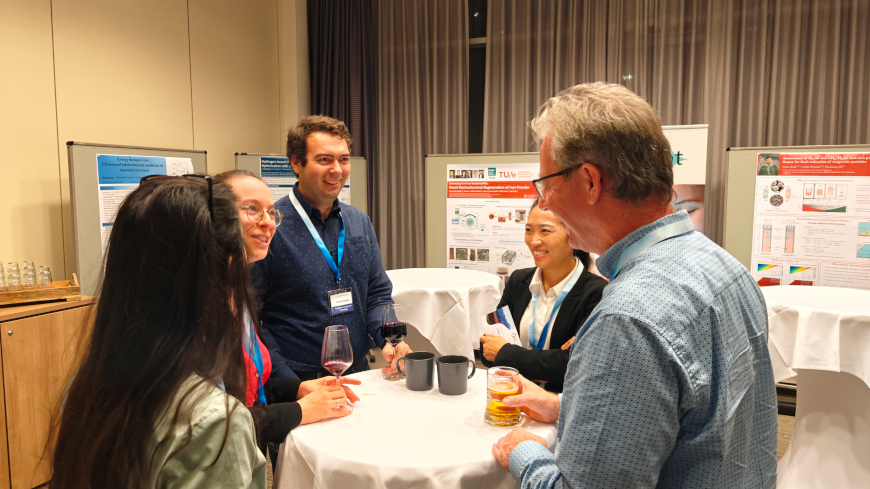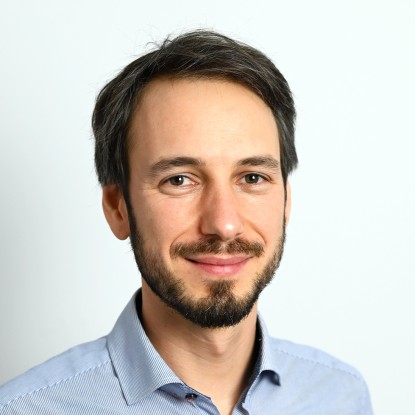Metals Take Center Stage in Renewable Energy at MeCRE 2024
TU Darmstadt and project Clean Circles host second international conference on metals as renewable energy carriers
2024/11/20 by ms
From November 13–15, 160 international researchers, industry leaders, and innovators converged in Darmstadt to explore one of the most promising green energy solutions: metals as renewable energy carriers. Hosted by TU Darmstadt in partnership with Karlsruhe Institute of Technology (KIT) and TU Eindhoven, the 2nd Conference on the Metal-enabled Cycle of Renewable Energy (MeCRE) showcased groundbreaking research and industry advances in harnessing the energy-storing power of iron and aluminum.
Revolutionizing Energy Storage and Transport
How can we efficiently store and globally transport surplus renewable energy? Which technologies will supply us with heat and electricity in winter? How can we provide hydrogen decentrally? These critical questions formed the heart of discussions during the 2.5-day conference. Metals, particularly iron and aluminum, emerged as frontrunners in solving these challenges.
Known as “reactive metals,” they offer unique advantages: they store energy in chemical redox reactions, can be reused in circular processes, and boast high energy density. Furthermore, their abundance and potential cost-effectiveness make them viable candidates for large-scale energy storage and transport in a future based on renewable energy.
Innovation on the Horizon
The conference highlighted the rapid advancements in this field. While researchers are continuously addressing fundamental questions, startups and industrial partnerships are already designing technologies and prototypes. The growing interest from energy providers and industries seeking alternatives to and accelerators of current hydrogen-focused strategies underscores the sector’s momentum.
Topics ranged from oxidation and reduction processes on the micro-scale to semi-industrial pilot plants and techno-economic analyses of green energy carriers. Iron-based energy systems, in particular, emerged as competitive with hydrogen and ammonia, offering advantages in safety, transport, and storage efficiency.
Insights from Industry Experts
Keynote speaker Ivo Dolk, a marine inspection expert specializing in the safe transport of iron and steel, provided a striking real-world perspective. Dolk detailed the logistics and safety protocols for moving over 40,000 tons of reduced iron particles via bulk freighters – a practice by which currently nearly 26 million tons of directly reduced iron are shipped annually. Another innovative idea came from Luuk de Waals, who proposed sourcing iron powder from the waste products produced during the pre-treatment of drinking water. Additionally, established startups and joint-ventures such as AMBARtec, Fenix, RIFT and Iron+ pitched their products and solutions.
A Shared Vision
The conference made one thing clear: the community is united in its mission to refine the science and technology needed to make metal-based energy systems commercially viable. Future efforts were grouped into five key priorities: advancing scientific understanding to guide technological development, demonstrating scalability and economic viability, fostering efficient knowledge exchange, and advocating the concept to stakeholders across the energy sector. With industry and academia collaborating, the future of the energy transition with metals as a cornerstone of a renewable system looks brighter than ever.
Facts, Figures & Outlook
160 particpants from 19 countries and 54 institutions joined the discussions at the 2nd MeCRE Conference. After the Call of Abstracts, 68 entries were submitted. In the end, five keynotes, 28 presentations and 11 pitches as well as 39 posters were presented on-site at the Welcome Hotel in Darmstadt.
The 3rd International MeCRE Conference (ReMeF Symposium), organized by Project Reveal, will take place on February 12-13, 2025 in Rapperswil, Switzerland, and will focus on aluminum.
If you are interested in staying up-to-date with activities of the MeCRE community, join the mailing list.
Acknowledgment
This conference was organized by the project Clean Circles in cooperation with TUe. Funding by the Hessian Ministry of Higher Education, Research, Science and the Arts is gratefully acknowledged.
